#DO YOU COPY? || ask
Explore tagged Tumblr posts
Text

"Dr. Hannibal Lecter?" Standing before the psychiatrist in his practically lavish office is one Special Agent Fox Mulder of the FBI. A bright, golden badge shines a reflection from the light in the room, bringing attention to the picture ID that clearly shows the man to be who he's about to say he is.
"Special Agent Fox Mulder, FBI. I called earlier to request some time in order to speak with you." The badge is then flipped closed, tucked away carefully back into the taupe suit jacket he wears almost loosely on his body. It's not so complimented by a hounds-tooth pattern tie that practically screams for attention. "Do you have a minute?"
@mostunwantedfbi || Mulder & Hannibal
Brown eyes focus entirely on the badge presented before him, a polite, if understandably false, smile lingers on his features. This is not the first officer to come barking at his doorstep and, he is certain, will not be the last. Often times his assistance had been employed by investigative forces, whether simply to ask basic probing questions in an attempt to glean something useful or to perform something as elaborate as a profile.
In rare, exceedingly rare, and concerning instances in which he truly feels empathy for the poor soul, he has dealt with accusations in the past. Nothing permanent, nothing could truly implicate him. He was simply a man so attached the broken and hurt of society, it is only natural some stains my cling to him.

His gaze turns upwards towards the man before him.
" Yes, I am not expecting a patient for another hour. Is that a suitable amount of time for you or will I have to inform them of a cancellation on my behalf? "
8 notes
·
View notes
Text
#booklr#poll#polls#book polls#no this was not inspired by me remembering how many copies i have of one book#why do you ask
5K notes
·
View notes
Text
CAN'T BELIEVE SOME OF YOU PEOPLE KNOW MY GF HWINEBHABWNAJCAHOWEEATOWEUB AU AS "THE KEYSMASH AU", GOOD HEAVENS, SPARE ME SOME DIGNITY /J
#nah but to be fr- i copy paste the name half the time I need it so I cant even blame you guys#do you have any idea how many new people I've had in my comments asking what the acronym is supposed to be?? /LH#i cant even answer them because I honest to God FORGOT#my post#sput chatters#gravity falls#gravity falls au#HWINEBHABWNAJCAHOWEEATOWEUB AU
503 notes
·
View notes
Text

Hold onto me if you must, a blade that rusts.
Sorry guys i cant hold back the rant my art posts always have i yap too much
Anyways an alt colour and silly version (and now ANOTHER alt version because I’m indecisive)
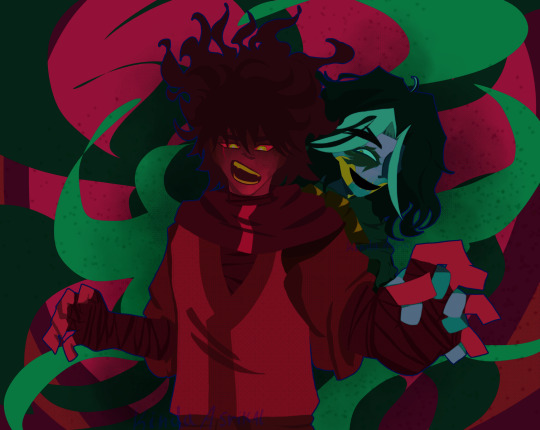


They so silly look at them they definitely wont murder each other <3
I spent a time amount of time on it that should’ve felt long but didn’t, i had way too much fun with the fill in lasso tool that made my life easier when i had no idea where to go after the sketch. And how to do the line-art for it, my God the amount of times i suffer when at that phase.
If I’m being perfectly honest, i think this is okay, but i’m not entirely sure if it’s good. Like i feel like it could be sm better. Anyways i just remembered exactly why i did this drawing and its because my amazing mutual @rusted-fairy-wings sent an ask on my birthday to draw possessed Kai and this is the result omg thank you sm for that its like you slapped me with the realisation i’ve never drawn them like this before. I know its not really possessed Kai but i hope it gives the same vibes 😭
Ehehehhe i feel like a cool pro posting a little coloured quote with my art damn
Also i took the rust thing because, you knowwww, Kai was a blacksmith and fire can cause rust. And i think if Morro were to possess Kai, that guy would put in so much effort to ruin himself so Morro wouldn’t and couldn’t use him as a tool. Especially with such a huge loss of control as a man who is so used to being in control with everything he’s been through. But thats why i used ‘hold onto me’ rather than ‘hold me’, because Morro would either gain entertainment from Kai’s suffering, would feel some sort of kinship with Kai due to their similar (yet differing) circumstances, or because he knows how to use Kai in the state he had forced himself into against the ninja.
Okay i’ll stop yapping take this i’ll run away now
Edit: okay im gonna edit and change the colours and positioning for this in the morning so look out for that 😭
Edit: okayyyy ive changed the colours and positioning a bit in a new ver but im scared it looks bad now so i refuse to touch this again anyways
#lego ninjago#ninjago#morro ninjago#morro wu#kai ninjago#kai smith#kai jiang#lego emo#ninjago morro#ninjago kai#destiny#destinyshipping#not a ship post though but#ots also a bit siggesting that#oh hey guys#listen how do you feel about cryptor and morro as a duo#LISTEN theyd work so good#theyre like the old achool version of harumi and mr e#can you see my vision#asrikals dumb rambles#asrikal art#fanart#aigsheheh i was supposed to use the actual ask i was sent#but half way between my yap did i remember and i was not embarrassingly copying that onto another post
208 notes
·
View notes
Text

I've offically come full circle a decade later since I'm back hyperfixating on the Arthurian legend distracting myself from everything and listening to the same music as my 14 year old self was. But hey at least I have the confidence in drawing them now.
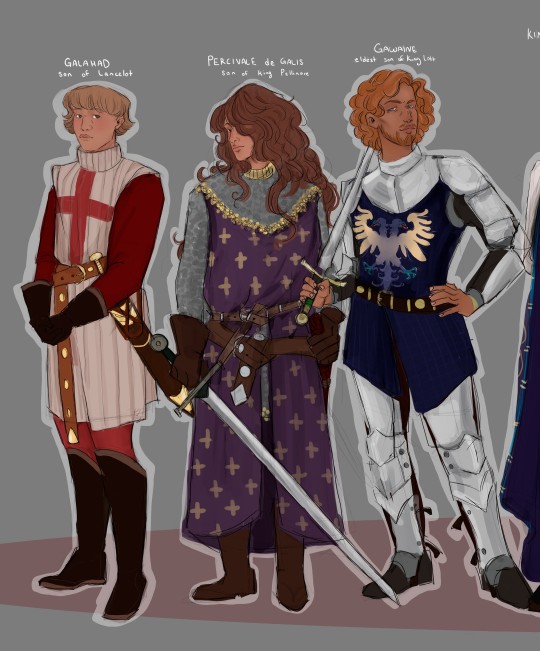
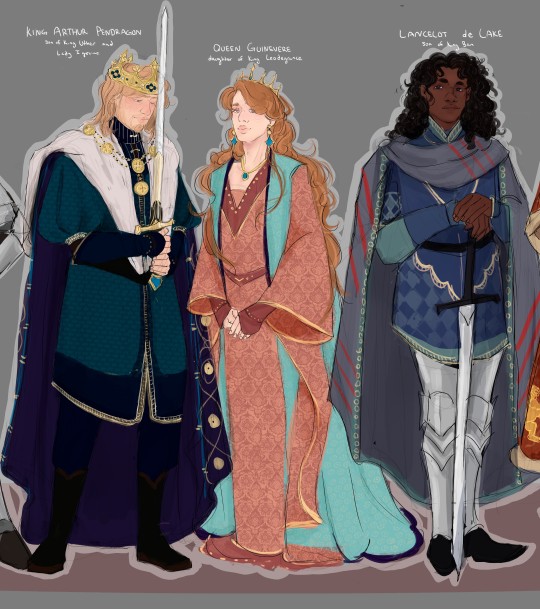
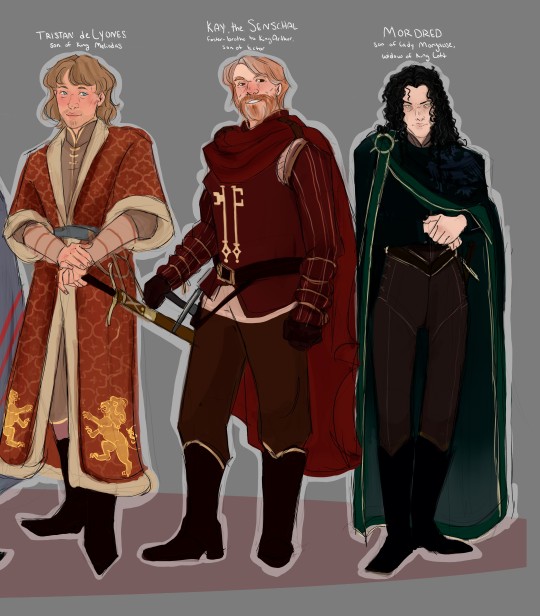




I love them so so dearly I'm going just a little insane, I'm sorry to everyone who doesn't know me beyond my usual fandoms, you have to put up with what rearranged my brain chemistry when I was a kid.
This started as just a few of the knights, Lancelot, Gawaine, and Galahad and then it became: "Oh but then I should draw __" and here we are. My designs are all over the place and I cannot be bothered to actually draw armor I'll die i just want to draw pretty patterns. But I think the mismatch of clothing styles and all that makes it cohesive?
And I'm going with Malroy and T.H White influence as it's what I know best, that being said all the boys have their coat of arms alluded to in some way but you might have to squint.
(my laptop absolutely hates me for this one. imagine exporting a file and then having to manipulate the sizing 3 times for it to even be able to upload anywhere, couldn't be me. I don't even know how to show the full thing..)
#toasterfireart#my art#hello 2025 I need this man to crawl out of the gaddamn lake and fix things#how do i even tag this man#arthurian legend#authuriana#arthurian mythology#I love them so so much#king arthur and the knights of the round table#king arthur#arthur pendragon#knights of the round table#lancelot#guinevere#gawaine#galahad#sir percival#mordred#tristan#sir kay#next in line was sir bors but I had no ideas#i feel like I should be adding sir before all their names but I wont#i got my copy of le mort d'arthur open flipping through like a huge nerd#this reignited because one of my profs asked what my favorite book was#and i said the once and future king#and he was not expecting that#thanks dr sparks#WAIT#omfg i hope he doesn't find this I know he has a tumblr#one of my friends asked why queer ppl were obsessed with arthuriana and I was like: do you see them
288 notes
·
View notes
Note
Are you ok with people sending fics to you as anons? Asking because I'm cooking one right now and I want to know what you're the most comfortable about
I'm completely fine with any way you send your fic honestly. If you prefer to stay anon and post your fics kinda "through my inbox" it's 100% okay:) Just please keep in mind that I might accidentally miss it so please have a copy somewhere
#There was one anon#who sent me an ask that was like “I wrote a fic right in the ask and didn't copy it anywhere else so please can you find it for me?-#-it was smth like three months ago“#and I just. sat there like...girl I would love to help but there are thousands of asks and you didn't even sign it??#if you send something as anon you can't expect me to recognize you eh? I don't know eglish well enough to know you just by writing style?#yeah so. the fic was lost sadly#so please do reserve copies of your fics:)#that way even if I fuck up and miss them you can still have them post them and everything#fics are precious precious art and shouldn't be lost
141 notes
·
View notes
Text
If I was hosting the trans swag competition today they would be automatically included


#something something idolizing and looking up to someone so much you copy everything they do to be just like them#(kinda trans if you ask me)#something something actually no deep reason for vince I just think the cannibal being trans is awesome#dead plate#cold front#cold front game
592 notes
·
View notes
Note
I love your art style so much, do you have advice on finding one's own art style
thank you, that's very kind! but, to tell the truth, I don't think I've ever once consciously had "finding a style" as a goal, and tbh I think aiming for that in the first place is kind of silly. if anything, I wish I had more variety sometimes! a recognizable art style isn't so much about like, establishing yourself to others as drawing a certain way, it's about figuring out what feels good to YOU to draw. and that might change dramatically over time, or be inconsistent, and that's totally okay. sometimes it's even a really useful skill.
my advice would be: find art that you love, that you look at and think "I wish I drew like that" or "it looks fun to draw like that" and save it and stare at it. figure out what the aspects of it are that you like the best and try to copy them. don't just copy from one artist though, take pieces from many different artists you love and frankenstein them together into something new, something that appeals to you especially. the fact that you're having fun drawing will come through in the art and over time you'll settle on ways you like to stylize things. and even after you feel like you've settled, always be open to new possibilities! allow the way you draw to change as you absorb more art, forever.
#asks#that extends to me as well. if you think the way i draw is cool and looks like fun please try to copy me!#youre not going to be able to do it exactly anyway because nobody can draw just like me#but if it helps you figure out the ways you like to draw thats all i want#(and honestly i get an absurd amount of joy out of looking at somebody else and knowing i inspired or influenced them)#(so youre actually just fulfilling MY goals)
56 notes
·
View notes
Text

i'm not taking orders from you.
@coastercrushed || Mapplethorpe & Frank || prompted.
Frank cants his head, rapid breathing emanating from behind his mask and causing small bursts of fog to spill from the corners of his drawn-over smile. It was like cat and mouse with Mapplethorpe, Frank chasing him down and taking his sweet time killing the poor bastard. He preferred to make him afraid, keep his heart hammering in his chest until it felt like it was going to fucking burst. Frank's thumb traces slow circles across the handle of his knife as he contemplates where best to stick it.

" You sure? " Frank questions, his tone amused as always, " Even if I promise, cross my heart, " He raises the blade of his knife and makes an X across his heart, " I'll let you go? Even if I promise I won't cut your tongue off and make you choke on it? " His voice is sickeningly sweet.
" Don't be such a bitch. All you gotta do is keep one of your friends from leaving that shack over there just long enough for me to grab them. Even a moron like you can do it. You don't even have to stick around! I'm not even making you watch! Do what I ask and they won't even remember what you did. Come on, that's a good deal, isn't it? You get to walk right out of here while I do the dirty work and no one gets hurt! "
Not for long, anyway.
#FRANK || ic#DO YOU COPY? || ask#coastercrushed#//A prelude to Frank making Mapplethorpe kill them himself#A little push to see how far he can make this guy go for him<3
26 notes
·
View notes
Text


Apparently the seat of Colonel in Central HQ is now vacant due to the unfortunate passing of Colonel Roy Mustang
#royed#niao fa#Lost Ed's book and then do the “how to talk to short people” pose Roy Mustang you really deserved worst the outcome possible#don't worry he's not dead#he'll come back soon in a few hours to ask for forgiveness#it was a limited copy of complex cretan alchemy book Edward was PISSED#fma#fmab#fma03#fma 03#fma 2003#fma brotherhood#roy mustang#edward elric
206 notes
·
View notes
Text
being on marauders tumblr has made me realize that a lot of people would actually share anne rice's (terrible) opinion about fanfiction if they didn't write fanfic themselves.
#what do you mean people aren't allowed to make transformative works of YOUR transformative work?#people will literally come on this terrible website and say “no one can write fanfic of another person's fanfic”#the call is coming from inside the house#“ask before you make fanart”#sorry but maybe just take your fanfic down#how are you going to create fan works and then turn around and act like a dickhead when someone else does the same thing#btw this is not about selling bound fanfic#that is an outlier cause that's just copying someone's story and using it to make money for yourself#marauders#fanfic#ao3#wolfstar#jegulus#jily#drarry#dramione
243 notes
·
View notes
Note
Can you draw dirk strider eating a ice cream cookie?!? :O3

#Homestuck#dirk strider#I noticed my ask says cookie instead of sandwich like everyone elses#do you type these all out individually??? You dont copy and paste them?????#you are facinating#Dart
95 notes
·
View notes
Text

I wish I could tell the original artist that this drawing permanently changed the entire direction of my life in 2009. I want to shake their hand, look them in the eye, and admit I would not be who I am today if this drawing didn’t exist.
EDIT: Original artist is @ivynajspyder !!!!
#‘but jojo’ you ask. ‘that seems a little ridiculous’#‘don’t you think that’s a little much?’#no. NO. IT IS THE TRUTH.#little baby middle schooler jojo had just gotten squeak squad. the first kirby game she ever owned.#and she loved it even tho there’s a lot she didn’t understand#like who dedede was supposed to be or why copy abilities existed#I asked for the game because my roommate at swim camp had it and she told me the plot of the game when I looked over her shoulder to watch#(the plot she told me was completely made up btw she said kirby had to save the dimension from dark overlord and did not mention the squeak#and said stuff about meta knight being a bad guy idk I realize now she was just weaving a tale of her own haha)#SO I WAS NOT AWARE OF THE LORE. I had only played the one game and it’s the one people don’t like the plot of#but meta knight completely intrigued me#what was this blue sword wielding little kirby dude doing here??#so I’d replay his boss fight over and over again just to get that glimpse at his face#and I’d sit and wonder what it all meant. who was this mysterious swordsman??#and the boss fight was hard!!! it cost me to beat it at the time but I’d still do it to see his face#AND THEN AFTER LIKE A YEAR OF THIS it occurred to me that there was a kirby wiki online#so I found all the pictures of his face and my little fangirl-raised-by-deviantart mind ATE THIS UP.#and then I look up that one fateful google search……… the one that changed me#meta.#knight.#maskless.#and this drawing was towards the top of the results#I went feral about a fandom related topic for the very very first time#I lost my MIND. HOW can a character be so cute AND COOL??! I was a changed child.#I consumed the hoshi no kaabii anime like it was the only piece of media on earth#I drew comics about him. I made my first kirby oc ever to go on a grand adventure on him.#I filled my notebooks with kirby art to the point my mom was like ‘jossie. you REALLY need to branch out. these are just orbs.’#and now I am the kirby artist I am today. so yes. YES. this drawing did change my life.#thanks for reading. and thanks to the original artist. I tried to find them to link but nothing. so if you know pls tell me#THE END!!! and remember! your art makes a difference in people’s lives even if they don’t say it to your face!!!!
300 notes
·
View notes
Note
For Jax. Cool bug fact's! 𝗈𝗇𝖾 𝖽𝖺𝗒, 𝗒𝗈𝗎 𝗐𝗂𝗅𝗅 𝖺𝗇𝗌𝗐𝖾𝗋 𝗍𝗁𝖾 𝖼𝗈𝗇𝗌𝗊𝗎𝖾𝗇𝗌𝖾𝗌 𝗈𝖿 𝗒𝗈𝗎𝗋 𝖺𝖼𝗍𝗂𝗈𝗇𝗌. 𐌀𐌍𐌃 ᏵꝊ𐌃, 𐌌𐌉Ᏽ𐋅𐌕 𐌍Ꝋ𐌕 𐌁𐌄 𐌔Ꝋ…𐌌𐌄𐌓𐌂𐌉𐌅𐌵𐌋.

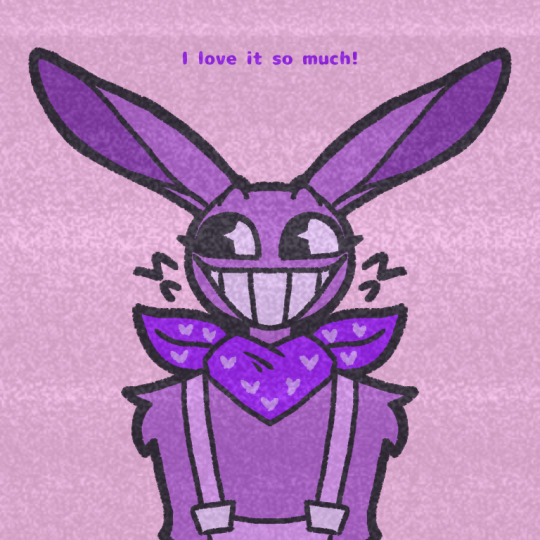







J: I remind myself of him sometimes. Did he fail that bad? Or did I fail myself in promises of never being like him?
#tadc#tadc fanart#amazing digital circus#tadc jax#the amazing digital circus#jax#heyy uhhh theres alot of jax hate in my ask box WHAT DID HE DO??#also its not this ask this isnt hate but i feel like its a good time to bring it up#i mischaracterized him so much in this ask blog hes much MUCH kinder than in game and still theres people that are trying to murder him 😭🙏#ill make a post explaining more maybe today or tomorrow but i just wanted to mention it 😭🙏 anyway have a nice day#yes im trying to copy analogue horror as inspo howd you know 🥰#ask fbd
205 notes
·
View notes
Text

the silhouette of frank stone is kneeling upon old concrete, eyes on the tower of hooks within the grim basement of screams. he resides here often. this is a place of her desires, her offerings, where sacrifice takes precedent of all things. it is here where the champion awaits her guidance. when he is not wandering for prey, frank stone gazes at the idea of her existence if only for a sign that his efforts are not wasted.
@lncarnon || The Champion & The Entity || unprompted.
It is as if the room around him breathing. Warm puffs of breath that heat the room and fill it with the idea that it is something living. Something alive. That each scream emanates from the bowels of some unknowable beast. It is rich with the stinging scent of copper, saturated with blood. It seeps from the wood and metal and stone, as if every surface is wounded. It is a sight of dread for any that find themselves trapped here, a death sentence. How often are they left to bleed out, their muscles tearing from her claws? How often are they abandoned, another's cowardice sacrificing them in their stead?
But for him, does this not feel like home? Does he not feel the way she envelops him, her presence heavy in the air. An unseen gaze turned upon him, her attention drawn to him. Her killer. Her Champion.
A claw breaks itself free from the monument before him, descending downward towards his almost pious form. How he yearned for her. How he felt her in his dreams. Calling to him. Beckoning him. Seeing him for the man, the monster, she knew he always was. Freed from the bounds of his skin, a dutiful servant. The claw curls against his gaping maw as if she were to lift his chin.
Approval. Acceptance. She sees his desire for her, for her attention, and she is not always a silent god. There can be no fear, no death, no suffering without hope. There must be fuel to burn and so, too, does she feed on this too. Sweet joy and bitter rage.
5 notes
·
View notes
Text
The Keefe Sencen Infantilization Argument (because I've seen people say that saying he infantilizes Sophie is a bad-faith argument):
(Note: This post is a repost. I had my thoughts scattered out over a few posts, so I wanted to put them all together in one cohesive post. If you've already seen all the original posts, then aside from like two sentences being reworked and the format being better now, there's like nothing new here for you. Sorry.)
Examples of Keefe infantilizing Sophie and my explanations as to why this is infantilization and not okay:
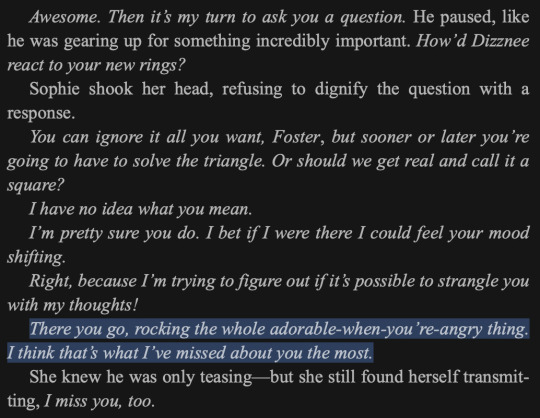
Lodestar, chapter 4. What I originally said: “There you go, rocking the whole adorable-when-you’re-angry thing. I think that’s what I’ve missed about you the most.” Keefe infantilizes Sophie by saying she’s cute when she’s angry. She is trying to express her feelings, and all Keefe can do is be all Awwwwww. Isn’t that so cute? She’s angry! How adorable. It’s a form of invalidating someone’s feelings, by treating them like they’re just entertainment or by brushing them off like that. It’s some of the most manipulative behavior out there. It also saves Keefe from having to actually take Sophie’s feelings into account. His infantilization of her also shows up in his incessant need to protect her. It’s icky and gross, and authors should stop encouraging this behavior.
Sophie and Keefe are having a mental conversation and Keefe starts talking about Sophie's love triangle/square situation and Sophie doesn't want to talk about it. Not a fan of this, because Keefe butts into Sophie's personal business, then when she gets worked up, he heavily implies that he thinks it's cute. But this one isn't particularly bad compared to the others. Don't get me wrong, I still think this is infantilization, but the best I can say about it is it's not the worst example.
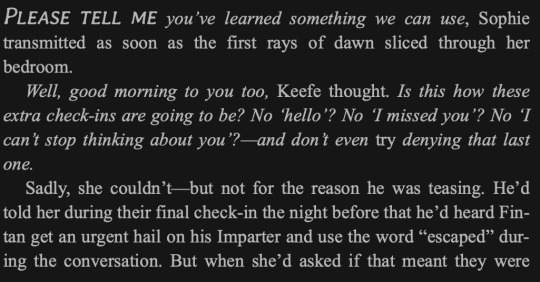

Lodestar, chapter 46. What I originally said: “You’re so cute when you worry, he told her.” More classic Keefe infantilization. He once again invalidates Sophie’s feelings by dumbing them down and acting like they’re this cute, quirky, inconsequential thing.
Sophie is obviously incredibly worried. Keefe clearly knows this. And his comment is to be like Yeah, but don't you know that makes you sooooo cute??? Like, sir.
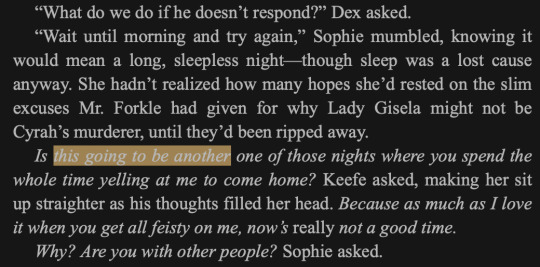
Lodestar, chapter 65. What I originally said: “Is this going to be another one of those nights where you spend the whole time yelling at me to come home? Keefe asked, making her sit up straighter as his thoughts filled her head. Because as much as I love it when you get all feisty on me, now’s really not a good time.” God, Keefe is so subtly invalidating. He treats Sophie like she’s just his personal worry machine, not a person with valid concerns and ideas. The flippant way he talks about her worry for him makes me so mad. He takes her worry for granted and throws it back in her face, without a care for how it would affect her mental health. He brushes her off and invalidates her because he thinks he’s so much smarter than everyone else. Not to mention he calls her worry “feisty” and further infantilizes her feelings and ideas.
This one honestly stands alone. Context doesn't really do anything to it. The infantilization for all these quotes is in the quote itself, because it is invalidating to treat someone's outburst of negative emotions as entertainment. Keefe basically just says that he finds it cute when she insists he comes home because she's worried about him??? He's like, yeah, Sophie's worried about me, tearing up her mental health over me, but like. She gets feisty when that all becomes externalized and she begs me to come home! Again, it's just a way he's able to brush Sophie's feelings off and disregard her opinion entirely.
When I say Keefe acts like Sophie is his personal worry machine, I'm saying he acts like her worry only exists for his amusement. He doesn't see the deeper feelings behind that worry (or if he does, he certainly doesn't respect them), and only see it for what he sees it as: something cute and adorable.
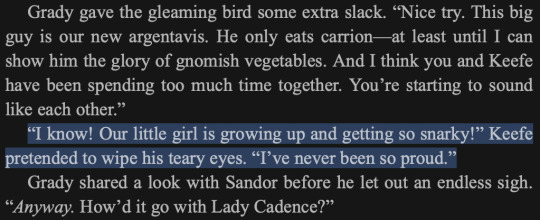
Nightfall, chapter 24. What I originally said: “‘I know! Our little girl is growing up and getting so snarky!’ Keefe pretended to wipe his teary eyes. ‘I’ve never been so proud.’” “Our little girl” . . . that totally isn’t creepy or infantilizing at all. The way Keefe talks about Sophie here is genuinely so gross, even if it is a joke.
This is a joke. 100%. But it's a joke that sat very poorly with me because of the way Keefe verbalizes this. The problem for me is in the quote itself, again, because I feel like saying these sorts of things constantly is just so weird.
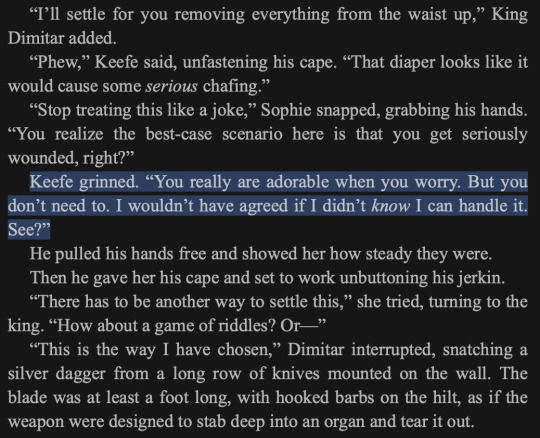
Nightfall, chapter 32. Wouldn't say what I originally said adds anything new, so I'm just gonna move past that. The larger problem here is 100% the fact that Keefe is clearly trying to joke to deflect Sophie's anger away. My argument isn't about that. My argument is that saying that someone's anger is adorable is textbook infantilization. In context, Keefe uses it as a way to deflect or joke. But the simple act of saying that is a form of invalidation where Sophie's emotions are made out to be some silly, inconsequential thing.
Anyway, about this quote in particular. Sophie is obviously freaking out, and she is clearly and seriously trying to tell him that his joking behavior is unacceptable. Keefe responds, not by listening at all to what Sophie said or what she's feeling, but by instead saying this. This invalidates Sophie's very real feelings as well as saves Keefe from having to confront what Sophie's telling him. And yes, this is a product of his deflection, but my point here is that saying someone's anger or worry is adorable or cute when they are trying to be serious is textbook infantilization, because it treats that opinion they have as a silly, child-like tantrum. "Awwww, isn't that anger adorable???" is what you say about a tantrum-throwing toddler who just got their favorite toy taken away, not someone your age presenting a valid, serious opinion. My issue is with the statement "Your anger/worry is adorable/cute" itself, not how Keefe uses it to deflect. It also presents Keefe, subtle as it may be, as the only one with valid opinions on things because Sophie's adorable little feelings get in the way of her rationality.
And before you say Sophie calls him out on this, yes, but he doesn't change. I'm not going to talk about it at length here, but Keefe apologizes to Sophie in the Nightfall scene after his bed rest more out of a desire to make up with her than a desire to change his bad habits. You can see this because he continues to do it into Unlocked.

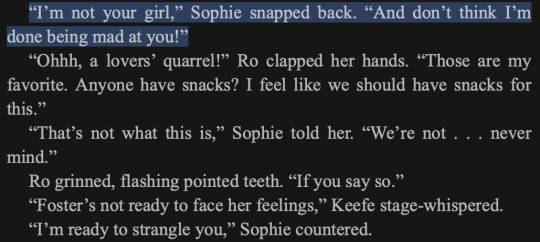
Nightfall, chapter 34. Again, I don't think what I originally said adds anything relevant, so I'll skip that here.
The famous scene. I do admit that Sophie calls Keefe out this time. However, as I've already said, this doesn't stick, so it hardly matter. Keefe continues with this behavior through the series and into Unlocked, where he doesn't necessarily say these things out loud, but you can see he still thinks them.

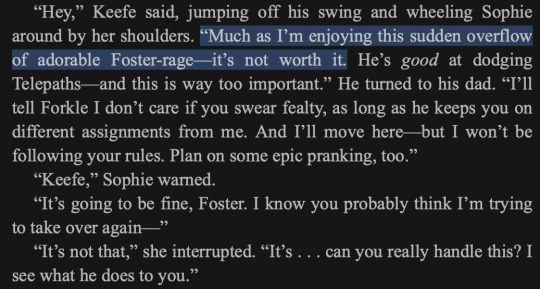
Nightfall, chapter 70. What I originally said: “‘Much as I’m enjoying this sudden overflow of adorable Foster-rage—it’s not worth it.’” Ah, more of Keefe infantilizing Sophie and invalidating her feelings. If someone finds your anger or worry “adorable” and acts like it’s this cute little quirk, then that’s never a good thing. Especially if they enjoy it. Someone who cares about you should never enjoy seeing you angry or worried.
Sophie's having a serious, key word here is serious, discussion (we'll call it a discussion, even though that's not particularly correct) with Cassius, and even though her rage isn't aimed at him this time, Keefe telling Sophie her rage is adorable when she's being serious is still dumbing down her emotions to that of a toddler throwing a tantrum, not a grown-up (at least relative to Keefe) having a very valid reason to be angry. Just because he agrees with her anger, doesn't mean he can't still infantilize her.
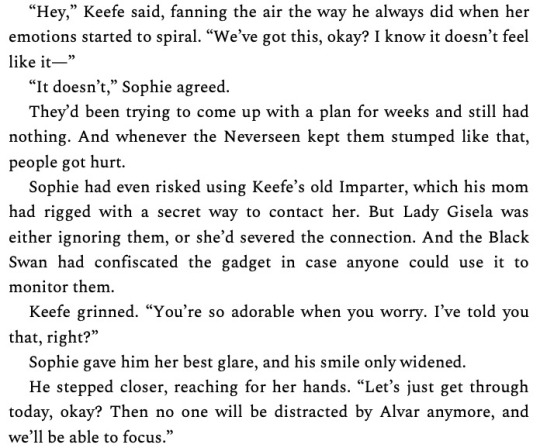
Flashback, chapter 1, page 12. I think what I said in my original post just about sums it up: “‘You’re so adorable when you worry. I’ve told you that, right?’” (12) Yes, you have, and saying it more doesn’t make it any less icky and gross and infantilizing. It’s like he’s dumbing Sophie down to this object who only exists to entertain him with her adowabuw wittle feewings, instead of a person with very real, very complex emotions.
Keefe fans the air, so we have physical evidence he knows exactly how worried Sophie is. And his response is to be like, so cute! So adorable! Once again, this is serious, and Keefe is acting like Sophie's worry exists only to amuse or entertain him. I don't know else to communicate that that isn't a good thing. Someone being worried usually means they have something they're worrying about, worry doesn't just manifest out of thin air for entertainment's sake. Sophie also responds poorly to his writing her off, with what and the glare and all.
(Side note: When I was looking for that quote, I found a quote where Fitz says the exact same thing, I'm talking word-for-word "adorable when you worry" stuff. Like I mentioned in my disclaimers, I'm not saying he's more right for this and I'm not letting him off the hook. It's icky when Keefe does it and it's icky when Fitz does it. But I'm solely focused on Keefe, which is why I'm not bringing that up. It's also worth it to note that Fitz doesn't say this over and over again, the way Keefe does.)
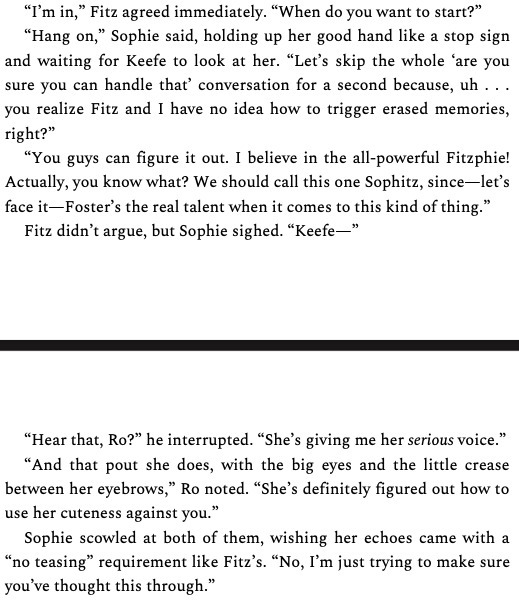
Flashback, chapter 17, page 304. I think I'm just going to copy-paste exactly what I said in my original post because it's exactly what I'm trying to say: “‘Hear that, Ro?’ he interrupted. ‘She’s giving me her serious voice.’” (304) Another example of Keefe infantilizing Sophie and dumbing her feelings down for the sake of a joke. Awwww, isn’t her serious voice so cute? She only does that when she thinks she has something important to say to us grown-ups! Awwwwwww.
Apparently, people don't get why this is a bad thing, so: acting like someone isn't being serious when you can literally feel their emotions and know they're being serious just because you don't like what they're saying is not just invalidation, but infantilization, because you are dumbing their emotions and the complexities behind them down to that of a child attempting to be serious.
I'd also argue that this shows Keefe's true colors: he only really listens to her opinions and respects them when he agrees with them. Disagreeing with someone is all fine and good, but you can still respect the other person's opinion and not dumb it down and act like it's lesser than your own. If Keefe said "Sophie, I hear you, but I think you're wrong" (in Keefe jokester language, obviously, not word-for-word what I wrote) then I wouldn't call this infantilization, I'd call it respect. My problems arise from when Keefe acts like Sophie's opinions are stupid because Sophie is the one saying them with that adorable little pouty voice.
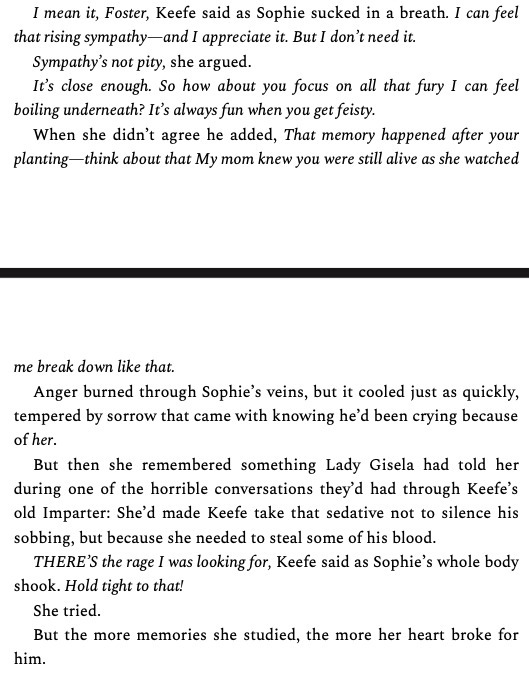
Flashback, chapter 21, page 355. What I originally said: “It’s always fun when you get feisty.” (355) I’ve said this about a gajillion times, but Keefe’s infantilization of Sophie is so horrific, it’s like he doesn’t care about her at all. He just sees her emotions as amusement for himself.
This is a sad scene, and Keefe has every right to be emotionally . . . off in this scene. But it still doesn't change the fact that he calls Sophie's anger "feistiness" and then says it's fun when she gets angry. You could say that's not exactly what he said, but it's likely that's what he meant given the past few quotes I've shown. Keefe has demonstrated a pattern of thinking Sophie's anger is amusing or adorable or fun. Anger is a negative emotion. When Sophie feels anger she doesn't feel good. And Keefe is like, yeah, but it's cute! Do you see how that's not the greatest thing to say? It says a lot about his internalized beliefs about Sophie, and is essentially confirmed by Unlocked. And even if that didn't represent the way he saw Sophie inside, that's still a really shitty thing to say because it still carries the invalidation.
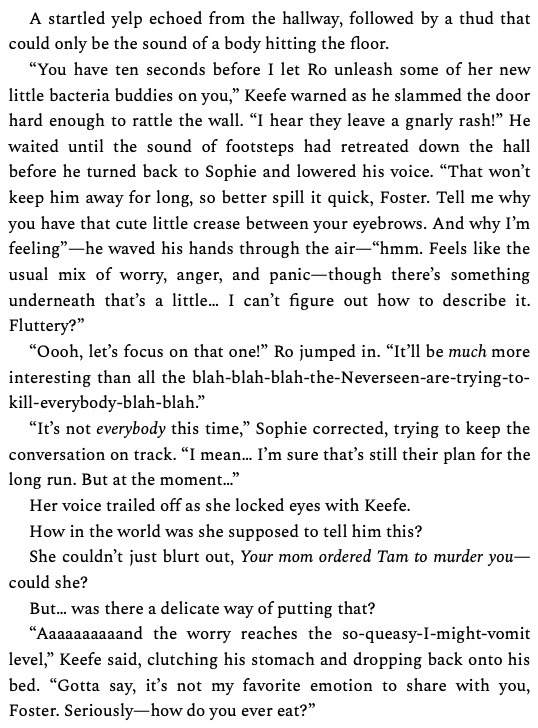
Legacy, chapter 3, page 70. What I originally said: “‘Tell me why you have that cute little crease between your eyebrows.’” (70) You already know what I’m going to say. Keefe finding Sophie’s worry cute is textbook infantilization. But also, if he finds her worry and anger so adorable, what’s he gonna do when the Neverseen are defeated and Sophie doesn’t have as many things worrying her?
So, the crease between the eyebrows is obviously because of worry. So by saying he finds it cute, Keefe indirectly says he finds Sophie's worry cute, though I'm sure I don't have to spell that out because he's already flat out admitted he finds Sophie's worry cute several times. I'm going to sound like a broken record if I repeat what I've been saying this entire post about why this is infantilization, so instead I wanna talk about that last paragraph there. Keefe literally knows how queasy Sophie's worry can make her sometimes, and he has expressed this before, as well. So he knows exactly what Sophie's going through when she worries. And still, he acts like her worry is amusing, funny, cute, or otherwise a quirky little thing. I don't understand how Keefe can be so invalidating, having had firsthand experience with Sophie's emotions.
“But I was only half listening because she gets this cute little crinkle between her eyebrows when she’s trying to be serious, and it makes me want to reach up and smooth her forehead with my fingertip—and I’m betting she’d think I was super weird if I did that, since it’s not like she’s my . . . ” (Unlocked, very first paragraph of Keefe's diary entry, 481)
Don't have an e-book of Unlocked, unfortunately (boooooooo). So the context is that Keefe is giving us (or himself???) an intro to what he's doing here, which is writing about his drawings. He explains that Sophie gave him the idea and gives a general overview of what she said to convince him. Then he says this quote.
Here's what I said, which I stand by: I hate the way Keefe talks about Sophie. She’s just this soft, kind of ditzy, child-like sort of figure in his head. He admits that he doesn’t care what she has to say, he just cares about how adorable she looks while she says it. This is a textbook sign of a toxic relationship. You should care about what your partner/crush says, because that shows that you see them as a person, not as your personal cover model. Also “trying to be serious” paints Sophie as this impudent little child who’s trying to get the attention of the older, more experienced adults and it very much implies that Sophie is not serious, but awwww, look how cute she looks trying to be serious, isn’t it adorable? Except Keefe and Sophie are the same age. So this is another case of textbook infantilization.
Personally, I think I made it fairly clear why I think this is infantilization. Keefe did not listen to the latter half of what Sophie said because he was too busy imagining how adorable she must've looked as she said it. I don't know how to make it more clear that Keefe does not respect or care about Sophie's opinions. He did what she asked, sure, but he did not actually listen to her. Again, implying Sophie was not being serious when she was is infantilization. It takes away the weight of what Sophie is saying and makes it out to be a thing of like, Oh well, Sophie told me to, so I guess I'll humor her adorable little wishes and give it a shot, but let's get back to what's more important here, which is how cute she probably looks! I don't know how else to explain that that's not an attitude you want in someone who claims to listen to you and respect you.
Addressing some other things (Keefe calling Sophie herself cute [1], Keefe's deflection [2], Keefe praising Sophie's prowess [3], Sophie not seeming bothered [4], and The Real Problem [5]):
I don't think Keefe calling Sophie herself cute or adorable by itself is infantilization. That's just a cute, fluffy teenage crush. 100% cool with that. My problem is with Keefe dumbing Sophie's negative emotions that have complexities behind them down to something cute or inconsequential by calling them adorable. There's a quote in the diary entries where Keefe describes Sophie's blush as adorable and proceeds to describe it in vivid detail. I don't like it for personal taste reasons, but I would never argue that this is infantilization. Because. It's not. There is no dumbing down of emotions here, no shrugging off experience or maturity. There's just a kid with a crush.
As for Keefe's habit of deflecting stuff through jokes, yes, it's a flaw and yes, some of the times Keefe infantilizes Sophie, he's using it as a joke to deflect. Yes, that's the larger issue. But the point still stands that the way in which he thinks of Sophie's worry and anger is infantilization.
There are moments where Keefe talks nonstop (sometimes in a very unnatural way, in my opinion) about how powerful and amazing and brilliant and talented and spectacular Sophie is and how he respects her choices and whatnot. I don't see this as particularly contradictory to his infantilization. Keefe can dumb Sophie's emotions down to cute, inconsequential little playthings while also insisting that he thinks she's amazing and powerful. I do think he does think that she's incredibly talented, but he also invalidates or disrespects her choices because he sees her emotions as adorable and unserious. Sophie is objectively powerful and talented and smart, I'm not really sure how saying those clear facts out loud changes the fact that Keefe still sees Sophie as very juvenile in his head. He can respect her prowess and capacity for talent while still disrespecting her opinions and emotions. The two can coexist. This is why I say Keefe pedestalizes and infantilizes Sophie simultaneously.
As for saying this doesn't bother Sophie (except in that one instance where she glares at him), I'd hardly say it matters. People can be the object of toxic behavior without realizing it. Sophie doesn't really seem to care past a handful of seconds when Keefe reads her emotions without her permission (on purpose, with intention), but I think most of us would agree that that doesn't make it acceptable. And Keefe's infantile views of Sophie say more about him than they do Sophie, which is the argument I'm trying to make. My point is that Keefe sees Sophie's emotions as inconsequential little things that don't need to be taken into account. This is all mapped into how he sees her internally. Again, just because Sophie doesn't seem bothered by Keefe's comments, doesn't mean they're acceptable, especially considering it gives us a view into the way he truly sees Sophie. And if Keefe thinks of Sophie is such an invalidating way, how are we supposed to believe he'll respect her when she argues with him, instead of just writing it off as "that adorable rage"?
And last but not least (as this is literally the reason people are annoyed with Keefe, regardless of what flaw you're talking about): the infantilization isn't the problem. Not really. What the problem is is that it is never called out by the narrative and when it is, it lasts two seconds, doesn't stick, and Keefe continues with it having not learned a thing. He doesn't change, and I can give you a thousand explanations for why Keefe may be so prone to infantilizing Sophie based on his childhood, trauma, and everything else, but none of that is an excuse. And I'm certainly not a fan of the way we're constantly told that Keefe respects Sophie when he's clearly so ready to undermine her emotions or dumb them down. If you're going to have him say things like this, it should be understandable that it's not a good thing.
I think it all comes down to this: Imagine you were trying to get a very serious point across to someone or otherwise feeling very emotional over something and then you look over and the other person's reaction is like, Aw, you're so cute when you're all worked up trying to be serious! Anger so adorable! Worry so cute! I love it when you get feisty! Wouldn't you feel like they don't respect what you're saying? Is that not incredibly icky and weird?
Here is the definition of infantilization. I think it's very difficult to make an argument that Keefe is not doing this to Sophie. And if you think that's bad, oh boy, is it so. Much. Worse. In the actual Unlocked novella. It's very difficult to deny that Keefe only sees Sophie as an adorable little cute thing that amuses him when you read it. But I'll get there . . .

Anyway I'm leaving it off with this because these are the vibes I get from Keefe every time he makes an infantilizing comment about Sophie (minus the yelling, Keefe doesn't really yell):

#kotlc#anti keefe sencen#anti sokeefe#going to just copy-paste most of my tags from my original posts:#again feel free to debate and argue with me and stuff i love talking to people that love keefe/sokeefe#my inbox is always open for a fight and anon asks are always on if you're shy :)#but i do hope you come away from this at least UNDERSTANDING why i don't like it when keefe says things like this#i skimmed unlocked a few days ago and it's even worse in there yikes i'll get to it#bottom line is: keefe will always see sophie as more of his crush than as her own person with respectable feelings#<- and that's my hot take of the day#dropping this here and fleeing for the night. i'll return tomorrow or possibly never#mine
69 notes
·
View notes